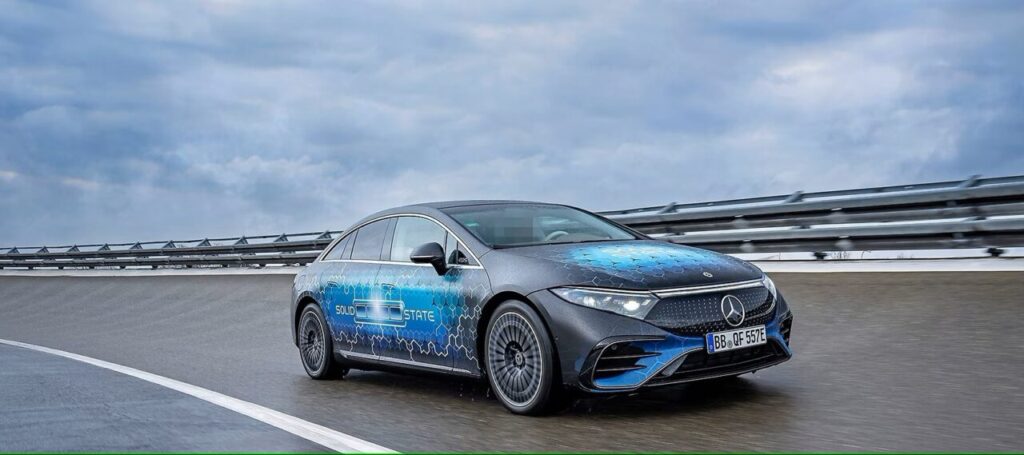Mercedes-Benz has begun road testing a solid-state EV battery system developed in partnership with US-based Factorial Energy.
Factorial provided cells for the battery pack, which has been developed by UK-based Mercedes-Benz group subsidiary Mercedes AMG High Performance Powertrains (HPP) and the Mercedes Benz Center of Competence for Battery Systems.
Factorial and Mercedes began working together in 2021, and in summer 2024 Factorial delivered lithium-metal solid-state battery cells with its proprietary FEST (Factorial Electrolyte System Technology) platforms to Mercedes-Benz, marking the first lithium metal solid-state battery B sample shipment to a global OEM.
At the end of last year, the all-solid-state Solstice battery pack was integrated into an EQS Sedan, requiring minor adjustments to make room for the larger pack. The first laboratory vehicle tests were already conducted in Stuttgart at the end of 2024 to prepare for the road tests that started in February.
Solid-state battery cells expand and contract as they charge and discharge, presenting a challenge for integration in automotives; Mercedes used a floating cell carrier to support the cells using these volume changes.
Solid-state batteries use a solid electrolyte instead of a liquid one, which makes cells safer and allows the use of new anodes like lithium metal which outperform conventional lithium-ion cells. For EVs, this means an increased driving range per charge.
Because of the technology’s potential for superior energy density, charging time, safety and longevity, it is well-suited to EV and energy storage system (ESS) applications, but the technology has yet to be deployed commercially at scale.
Mercedes estimates a 25% driving range increase with the new battery compared to the same battery weight and size in an EQS vehicle using a standard battery. The development vehicle with a solid-state battery is expected to have a range of over 620 miles.
CEO and co-founder of Factorial Energy Siyu Huang said: “Being the first to successfully integrate lithium metal solid-state batteries into a production vehicle platform marks a historic achievement in electric mobility.
“This breakthrough demonstrates that solid-state battery technology has moved beyond the laboratory and into real-world application, setting a new benchmark for the entire automotive industry. Our collaboration with Mercedes-Benz proves that the future of electric vehicles is not just a vision, but a reality we’re delivering today.”
Factorial is working with other automakers including Hyundai and Stellantis. Hyundai plans to launch a demonstration line of all-solid-state EV batteries in March, while Stellantis confirmed in October that it would launch a demonstration fleet of its electric Dodge Charger Daytona coupes using Factorial cells by 2026.






